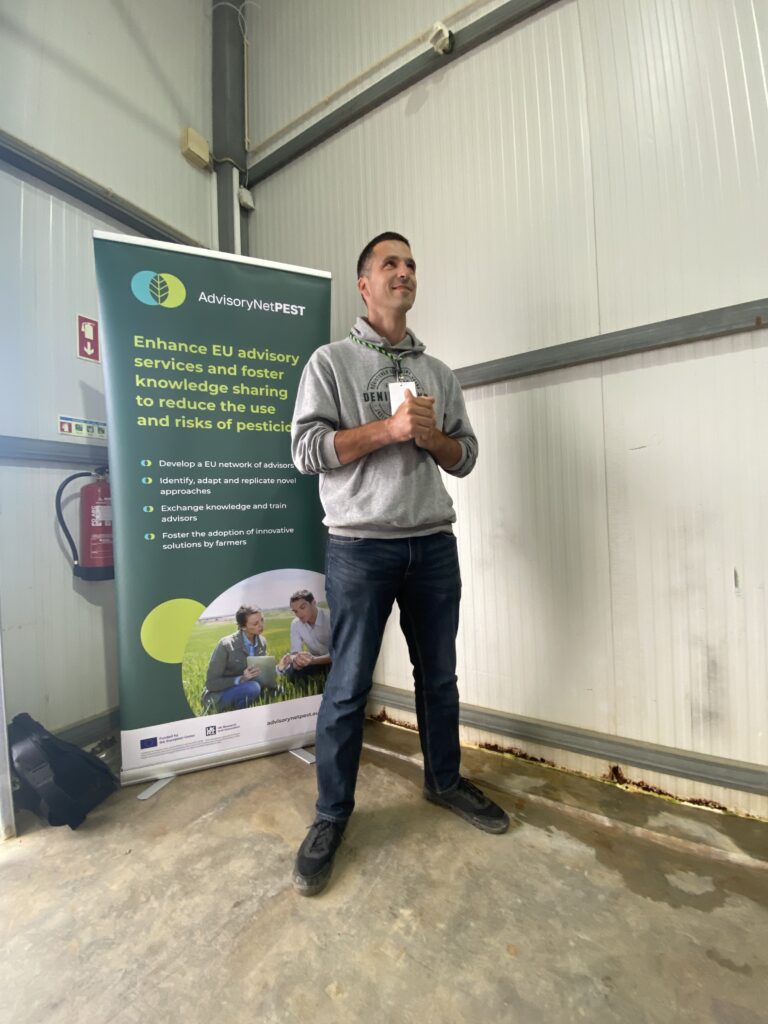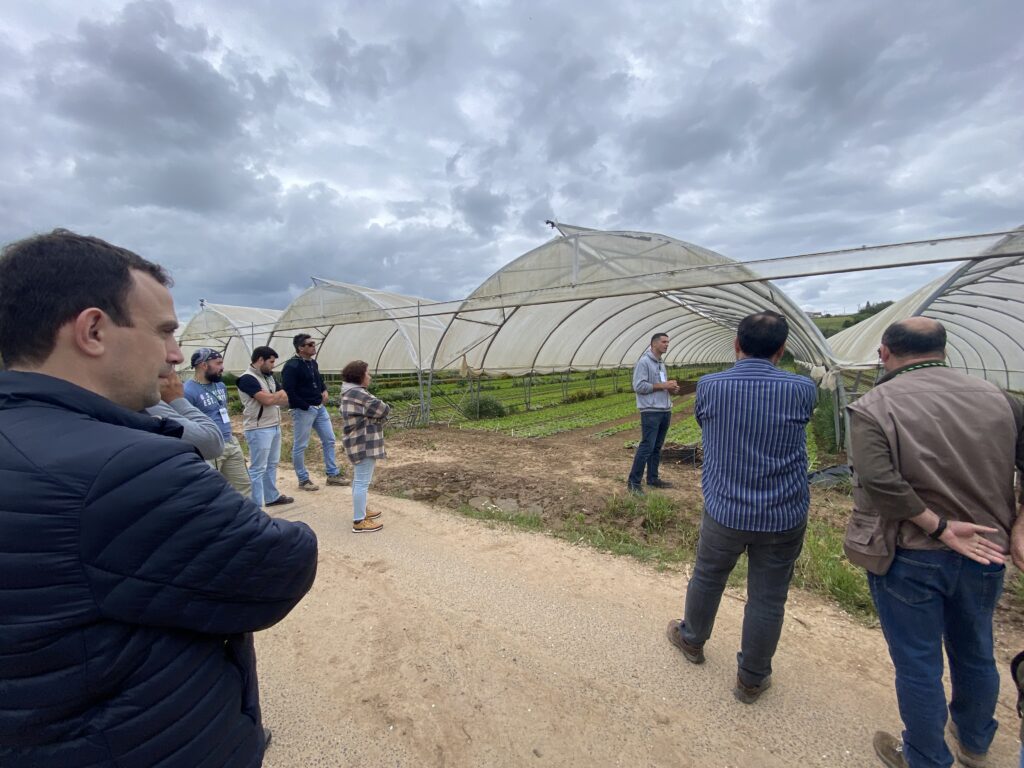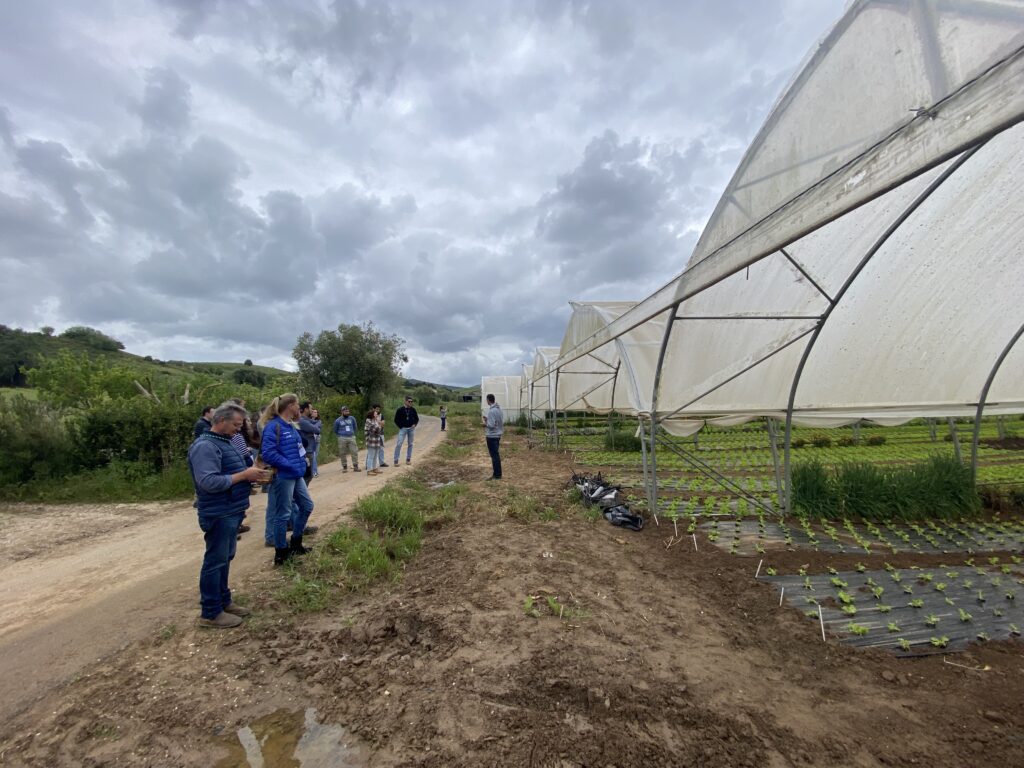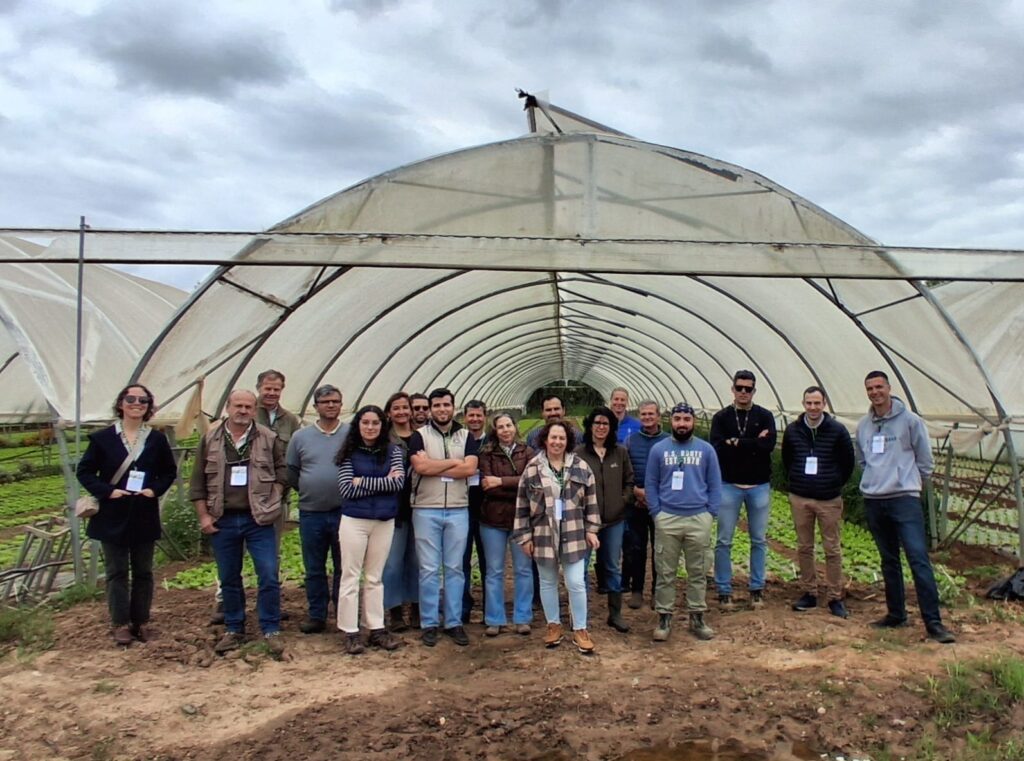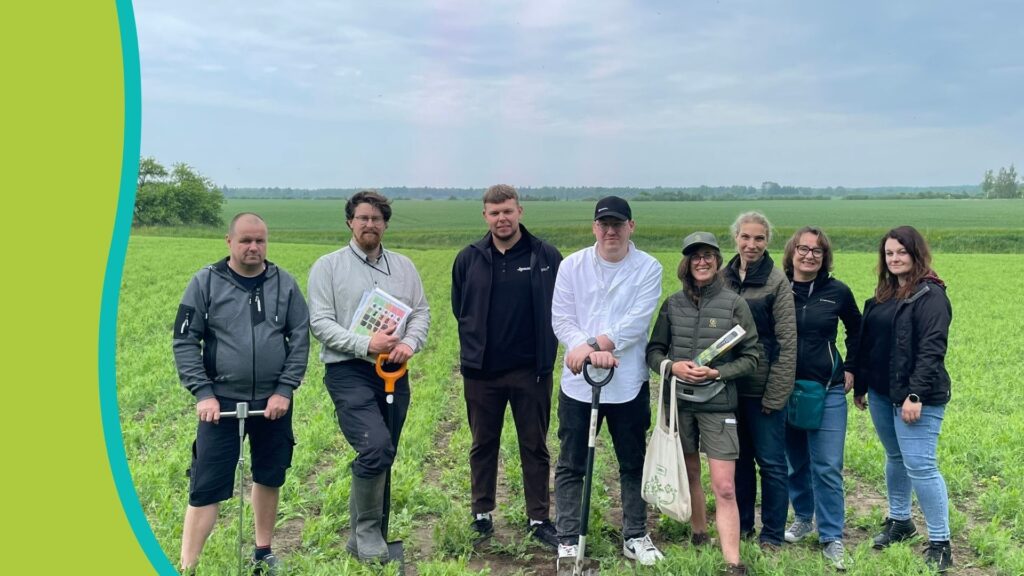In Portugal, the AdvisoryNetPEST project recently brought together agricultural and commercial advisors for a dynamic meeting focused on introducing the initiative, fostering networking, and exchanging knowledge on sustainable pest management strategies.
The event opened with an engaging icebreaker: participants pinned their hometowns on a large map and introduced their professional roles, creating an immediate sense of community and collaboration.
A highlight of the day was the presentation of an innovative practice—crop rotation and intercropping with fava bean (Vicia faba), vetch (Vicia cracca), and triticale (×Triticosecale Wittm.). These crops, when incorporated into the soil, enrich organic matter and reduce the need for synthetic fertilizers. The meeting also featured biodiversity strips within lettuce greenhouses, designed to boost ecological pest control.
Participants explored a range of novel approaches to pesticide use and risk reduction, plotted on a unique graph mapping their commonality versus innovation and their potential for use versus risk reduction. The methods discussed included:
- Biological solutions: Bacillus spp., beneficial insects, and soil microorganisms.
- Mechanical/technological innovations: efficient spraying equipment, robotic weeders, thermal weed control, smart insect traps, and weather-based disease models.
- Plant and soil improvements: herbicide-resistant varieties, enhanced plant nutrition, and increased soil organic matter.
Field demonstrations proved to be a standout feature of the event, allowing participants to see biodiversity strips and species consociation in action. Advisors engaged in lively discussions about the most effective species combinations, the best timing for biomass incorporation, and whether plant material should be shredded before being returned to the soil.
While enthusiasm for the innovations was high, participants also considered practical challenges. Factors such as soil variability, regional cropping systems, and cost constraints were identified as potential barriers to adoption. High-tech solutions like robotic weeders, although promising, were viewed as financially challenging for smaller farms. Some participants also reported inconsistent trial results, underscoring the need for further research, evidence, and support to encourage broader uptake.
Overall, the AdvisoryNetPEST project meeting succeeded in creating a platform for sharing practical, evidence-based approaches to sustainable pest management. The combination of technical presentations, hands-on demonstrations, and open dialogue ensured that participants left with fresh insights and strengthened professional connections.
